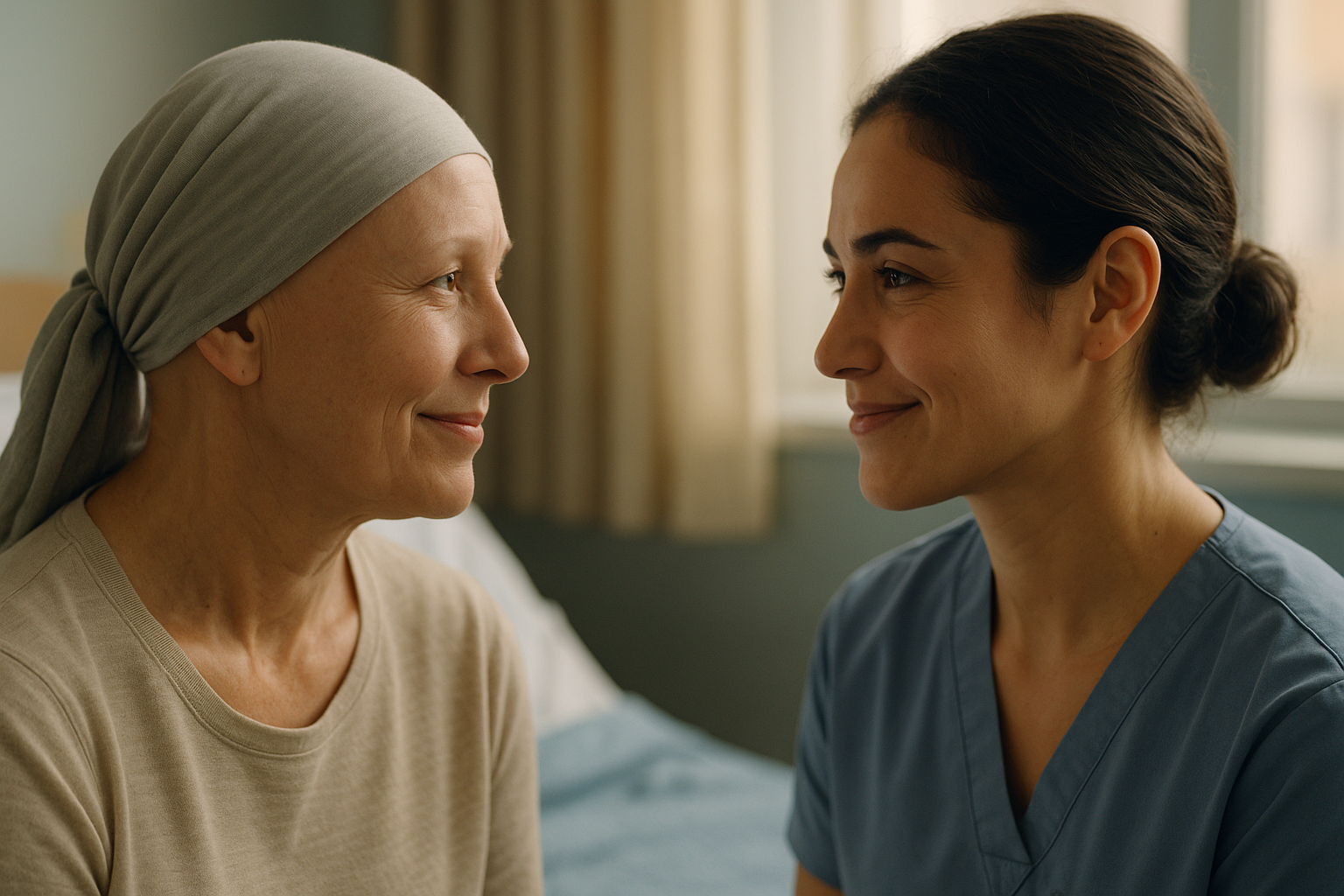But for now, let’s begin with what it means to truly accompany someone through cancer.
Today’s Big Idea
You don’t need to fix anything. Your presence is the medicine.
This is hard to believe in a world obsessed with solutions. But in the realm of cancer—where so much is uncertain, painful, and unfixable—what matters most is your presence. Your ability to sit beside someone in silence, to witness their fear without rushing to erase it, to offer stability when the ground beneath them has crumbled.
The Hook: A Story from the Edge
I remember the first time I sat with someone after they received their diagnosis. It was my cousin, 53 years old, diagnosed with ovarian cancer. The hospital room was quiet, but not peaceful. The kind of silence that hums with dread.
She didn’t cry. She didn’t speak. She just looked out the window, her hands folded tightly in her lap. And I, desperate to say something comforting, opened my mouth—then closed it again.
There was nothing to say. So I sat. One hour. Two. We watched the shadows shift across the floor. Finally, she said, “Thanks for not trying to cheer me up.
”
That moment taught me more about love than any book ever could.

The Proof: Why Presence Heals
Research confirms what many of us already feel in our bones: emotional support impacts physical healing. Studies show that cancer patients with strong social support often experience:
- Lower levels of stress and inflammation
- Better treatment adherence
- Improved mood and resilience
- Higher survival rates in some cases
It means saying, “I don’t know what to say, but I’m here.”

Here’s How You Can Do It
B
elow are practical, heart-centered ways you can accompany someone who is fighting cancer. You don’t need training. Just the courage to show up.
- Be There, Even When It's Awkward
- Show up without expectation.
- Sit in silence if that’s what they need.
- Let them lead the conversation—or the stillness.
- Listen Without Fixing
- Say, “That sounds really hard.”
- Let them cry without interrupting.
- Validate their experience instead of minimizing it.
- Honor Their Autonomy
- “Would you like company or quiet today?”
- “Do you want advice, or do you just need me to listen?”
- Respect their spiritual beliefs or lack thereof.
- Offer Specific Help
- “Can I bring you groceries on Tuesday?”
- “Would it help if I took care of your laundry this weekend?”
- “Want me to drive you to your next appointment?”
- Don’t Disappear
- Keep reaching out—even if they don’t always reply.
- Send voice notes, letters, or gentle check-ins.
- Be consistent. Cancer is a long road.
Meditation as a Shared Anchor
If the person you're supporting is open to it, meditation can be a beautiful tool to practice together.
- Sit side by side and breathe in silence.
- Use a short guided meditation to center yourselves.
- Even one minute of stillness can bring peace.
Meditation doesn’t have to be formal or perfect. It just creates space. And in the chaos of cancer, space is sacred.
What This All Means
To accompany someone through cancer is to walk beside them—not ahead, not behind, not trying to drag or direct—but beside.
It is a profound act of love to witness pain without rushing to change it. To sit with discomfort. To let go of being “helpful” in favor of being human.
You may never fully know what your presence meant to them. But I promise—it matters.
Remember This
You don’t have to say the right thing.
You just have to stay.
Next Time On…
In the next post, we’ll talk about how caregivers can care for themselves without guilt. Because you can’t pour from an empty cup—and your healing matters too.
A Note From Arumi
This blog comes from lived experience. It also comes from years of study, practice, and heartbreak. Soon, I’ll be releasing my book, Meditation and Cancer: A Path to Healing and Resilience.
It’s for patients. It’s for caregivers. It’s for anyone walking through the storm of illness and looking for a place to breathe.
If today’s words resonated with you, I’d love for you to stay connected.
Visit https://aruminomad.com/blog/ and subscribe for updates, guided meditations, and the book launch announcement.
I
n the meantime—breathe. Be kind to yourself. And thank you for being the kind of person who shows up.
The world needs more of you.
Arumi Nomad
